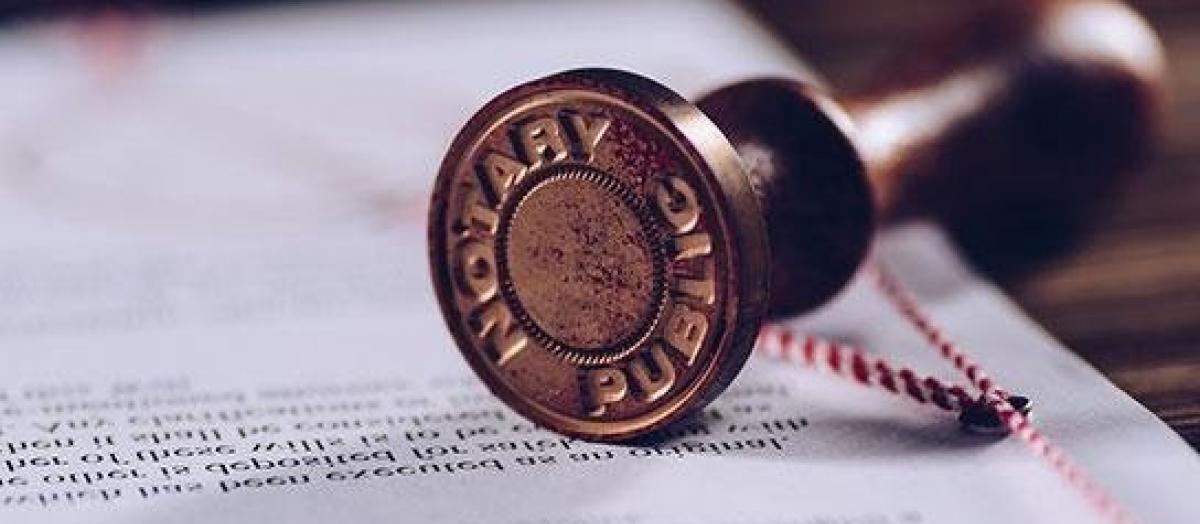Debunking Notarial Job: Simplifying the Function and Importance of Notaries
In the complex internet of lawful paperwork and confirmation, notaries stand as columns of guarantee and credibility. Their function, usually shrouded in mystery for many, brings substantial weight in ensuring the credibility and integrity of critical documents. As guardians of legality and truth, notaries play an essential component in our culture, yet their job is not always totally recognized. By unraveling the complexities losing and surrounding notarial methods light on the value of their acts, a more clear understanding arises of the essential duty notaries play in upholding the material of contractual and lawful arrangements.
The History of Notarial Job
The history of notarial job dates back to ancient human beings, where scribes played an essential duty in tape-recording important info and verifying records. This led to the advancement of notaries, people appointed by the state to act as objective witnesses in lawful matters.
During the Center Ages, notaries gained importance in Europe, with their functions increasing to include preparing lawful documents, licensing signatures, and preserving records. The rise of global profession further highlighted the relevance of notarial operate in confirming agreements and arrangements across borders.
In the contemporary period, notaries remain to play an important function in lawful and organization purchases by confirming identifications, verifying the credibility of papers, and preventing fraud. Their role in certifying the credibility of arrangements includes a layer of safety and trust to the ever-evolving landscape of commerce and law.

Obligations and Duties of Notaries
The historic development of notarial work from ancient worlds to the modern era has formed the distinct duties and obligations that notaries promote in legal and organization purchases today. Notaries play a vital duty in validating the authenticity of documents and the identity of signatures. Among their key obligations is to witness the signing of important documents, such as actions, contracts, and wills, to make certain that all events are becoming part of agreements knowingly and willingly. Notaries likewise confirm that signatories are of audio mind and not under discomfort or browbeating.
They license duplicates of original records, giving guarantee to establishments that the duplicates are real reproductions of the originals. Generally, the obligations and duties of notaries are important in protecting the stability and legitimacy of numerous files and transactions - Conveyancer.
Notarial Certificates and Signatures
Exemplifying precise interest to detail, notarial certificates and signatures work as essential parts in verifying the credibility of legal documents. Notarial certifications usually have critical info such as the date of registration, the names of the signatories, a summary of the paper, and the notary's main seal. These certifications supply a clear record of the notarial act, ensuring that the paper can be easily identified and mapped back to the notary who looked after the procedure.
Signatures play a pivotal role in notarial work, as they symbolize the agreement and authorization of the parties entailed. Notaries very carefully witness the signing of records to confirm the identity of the signatures and validate that they are authorizing of their own cost-free will. By attaching their main seal and trademark to the document, notaries license that the required procedures have actually been followed which other the document is enforceable and legitimate.
Essentially, notarial certifications and signatures are the hallmark of credibility in lawful deals, offering guarantee to all celebrations entailed that the documents are legitimate and binding.
Relevance of Notarial Acts

Notarization Process Discussed
Clarifying the notarization process provides quality on the essential steps involved in validating lawful files. The notarization process generally begins with the private presenting the document to a notary public. The notary after that verifies the endorser's identification via acceptable recognition techniques. When the identification is confirmed, the notary makes sure that the private signing the record does so willingly and without any kind of browbeating.

Verdict

Notarial certifications commonly contain essential details such as the date of registration, the names of the notaries, a description of the record, and the notary's official seal. These certificates provide a clear record of the notarial act, making sure that the document can be conveniently determined and traced back to the see this notary who managed the process.
By affixing their main seal and signature to the paper, notaries certify that the required procedures have been complied with and that the record is enforceable and legitimate.
By confirming the identification of the signatories, validating their willingness to enter right into the arrangement, and licensing the date and area of the signing, notaries play a vital duty in supporting the credibility of lawful documents.After the file is authorized, the notary will certainly affix their official seal or stamp onto the document.
Comments on “DIRCO Laws Demystified: A Overview to Diplomatic Procedure”